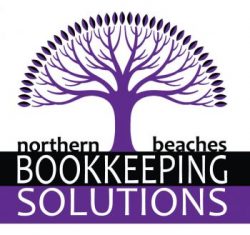Has your bookkeeping fallen behind? It happens to the best of us – but waiting until tax time to organise your financial records can lead to costly errors and missed deductions. Now is the perfect time to catch up on bookkeeping, get your accounts in order, and stay compliant with ATO reporting requirements. Here’s a step-by-step guide to getting your books back on track.
Why Catching Up on Bookkeeping Is Important
Delaying bookkeeping tasks can create serious financial and legal risks for your business, including:
- Missed Tax Deductions: Unrecorded expenses can lead to higher taxable income and missed tax savings.
- Cash Flow Issues: Unreconciled bank accounts and outstanding invoices can cause cash flow discrepancies.
- ATO Penalties: Late BAS lodgements and tax returns can result in hefty fines and interest charges.
- Poor Financial Decisions: Incomplete records make it difficult to assess business performance and plan for growth.
How to Catch Up on Bookkeeping – Step-by-Step
If you’re behind on bookkeeping, follow these steps to bring your financial records up to date:
- 1. Gather Financial Documents: Collect all bank statements, invoices, receipts, and payroll records for the period you’re behind on.
- 2. Reconcile Bank Accounts: Match each bank transaction to its corresponding entry in your accounting software to ensure all income and expenses are recorded accurately.
- 3. Review Accounts Payable: Identify outstanding bills and payments due. Record any missing invoices and schedule payments to avoid late fees.
- 4. Update Accounts Receivable: Follow up on unpaid invoices, record payments received, and write off bad debts if necessary.
- 5. Track Business Expenses: Ensure all business-related expenses are recorded and categorised correctly to maximise tax deductions.
- 6. Reconcile Payroll Records: Verify that employee wages, superannuation contributions, and tax withholdings are accurately reported.
- 7. Adjust for Missing Transactions: Review bank statements for any missing or unrecorded transactions, such as interest income or bank fees.
- 8. Generate Financial Reports: Run key financial reports, including profit and loss, balance sheet, and cash flow statements to assess business performance.
Common Bookkeeping Mistakes to Avoid
When catching up on overdue bookkeeping, avoid these common pitfalls:
- Mixing Personal and Business Expenses: Keep personal expenses separate to avoid tax issues and maintain accurate records.
- Ignoring Small Transactions: Even minor expenses can add up, so record every transaction, no matter how small.
- Failing to Track Cash Payments: Cash transactions should be recorded promptly to prevent discrepancies.
- Overlooking Payroll Liabilities: Ensure employee wages, tax withholdings, and superannuation are accurately reported and reconciled.
How to Stay Organised After Catching Up
Once your books are up to date, implement these strategies to stay organised and avoid falling behind again:
- Schedule Regular Bookkeeping Sessions: Set aside time weekly or monthly to update records and reconcile accounts.
- Automate Data Entry: Use accounting software to automatically import bank transactions and categorise expenses.
- Set Up Invoice Reminders: Automate invoice reminders to follow up on outstanding payments and maintain cash flow.
- Outsource to a Bookkeeper: Consider hiring a bookkeeper to manage ongoing financial records, BAS lodgements, and payroll processing.
How We Can Help
At Northern Beaches Bookkeeping Solutions, we specialise in catch-up bookkeeping services for small businesses. Whether you’re behind on BAS lodgements, payroll, or bank reconciliations, our experienced bookkeepers can help you get your books back in order and maintain accurate financial records moving forward. Contact us today to learn more about our bookkeeping solutions.
